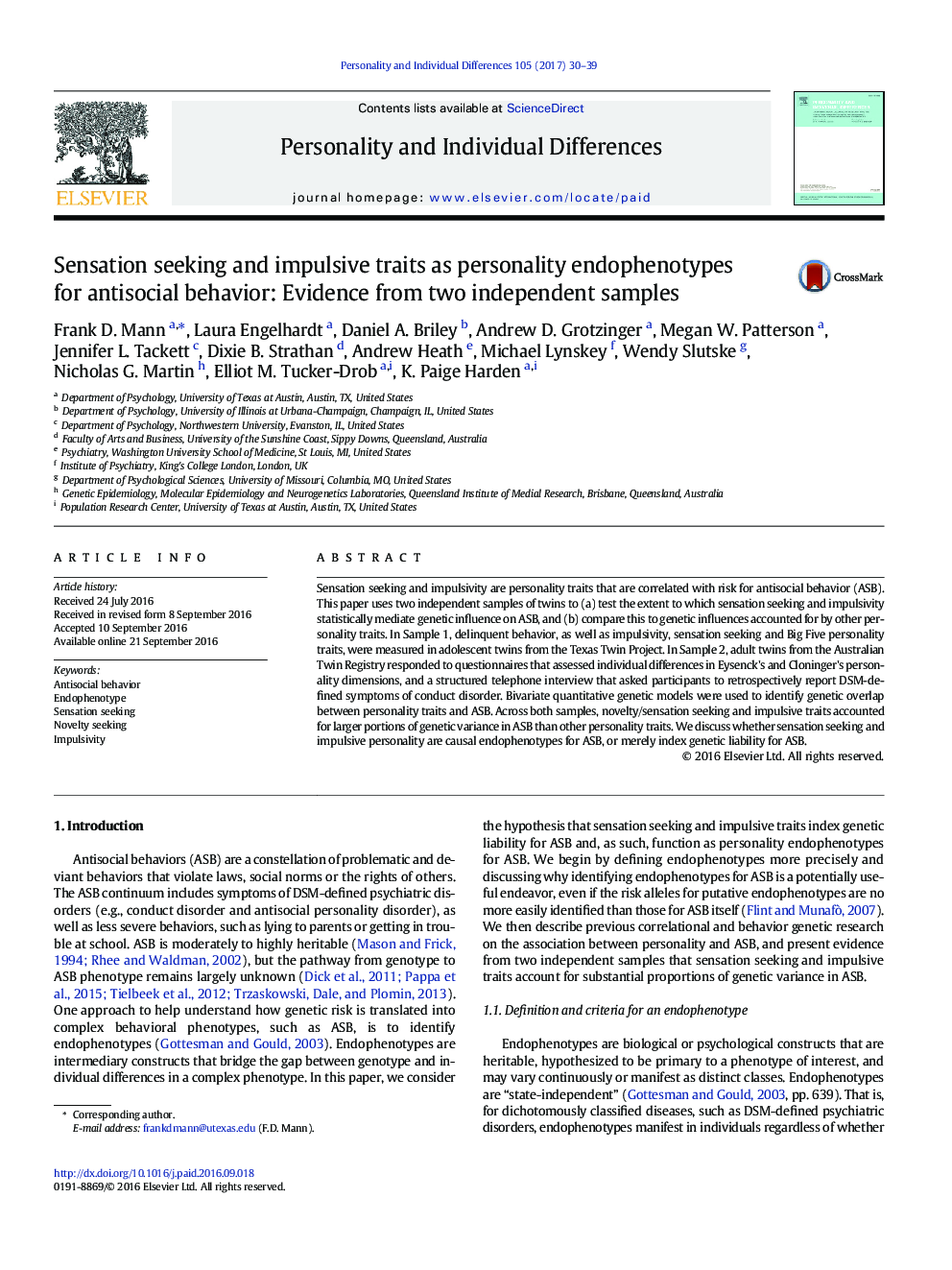| Article ID | Journal | Published Year | Pages | File Type |
|---|---|---|---|---|
| 5036026 | Personality and Individual Differences | 2017 | 10 Pages |
â¢We test whether sensation seeking and impulsivity are endophenotypes for ASB.â¢Data from both the Texas Twin Project and Australian Twin Registry were analyzed.â¢There were significant portions of genetic overlap between sensation seeking and ASBâ¢There were significant portions of genetic overlap between impulsivity and ASBâ¢Results were largely consistent across different samples, measures of personality and sex.
Sensation seeking and impulsivity are personality traits that are correlated with risk for antisocial behavior (ASB). This paper uses two independent samples of twins to (a) test the extent to which sensation seeking and impulsivity statistically mediate genetic influence on ASB, and (b) compare this to genetic influences accounted for by other personality traits. In Sample 1, delinquent behavior, as well as impulsivity, sensation seeking and Big Five personality traits, were measured in adolescent twins from the Texas Twin Project. In Sample 2, adult twins from the Australian Twin Registry responded to questionnaires that assessed individual differences in Eysenck's and Cloninger's personality dimensions, and a structured telephone interview that asked participants to retrospectively report DSM-defined symptoms of conduct disorder. Bivariate quantitative genetic models were used to identify genetic overlap between personality traits and ASB. Across both samples, novelty/sensation seeking and impulsive traits accounted for larger portions of genetic variance in ASB than other personality traits. We discuss whether sensation seeking and impulsive personality are causal endophenotypes for ASB, or merely index genetic liability for ASB.
